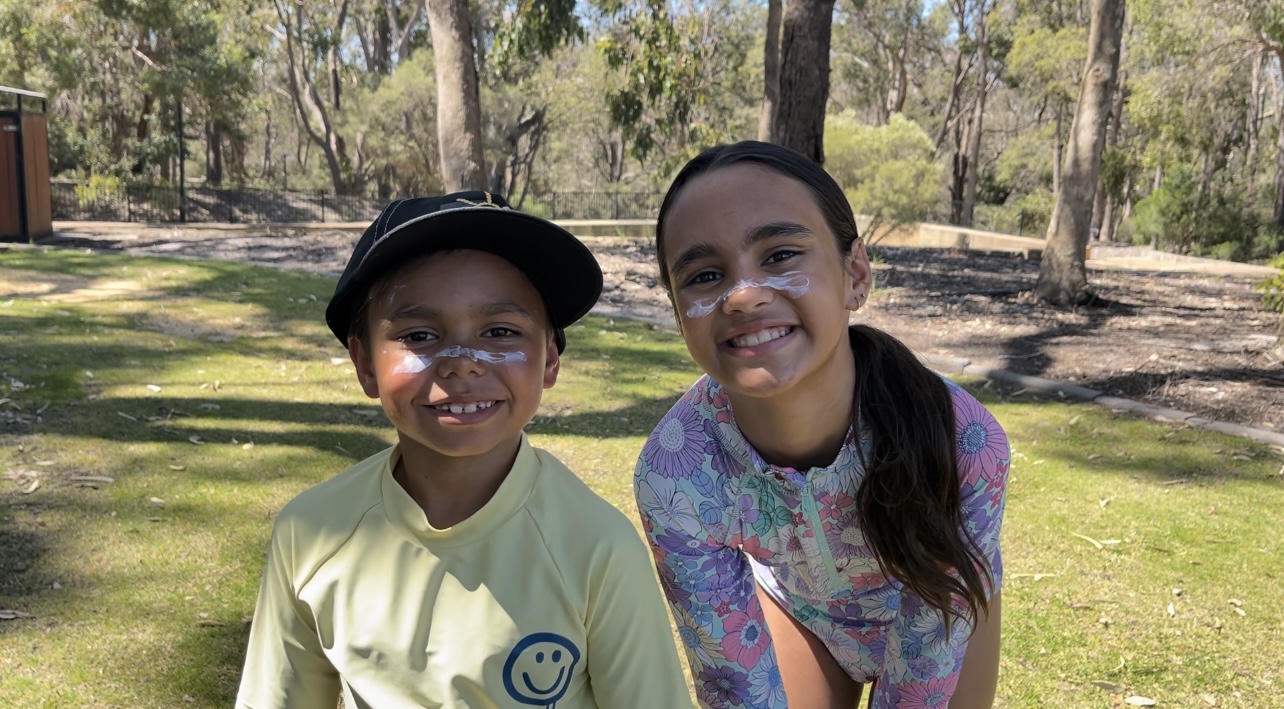
Vital research promoting sun smart choices and skin cancer prevention for young Aboriginal people is now underway at The Kids Research Institute Australia thanks to a $100,000 Perpetual 2024 IMPACT Philanthropy grant.
Co-led by Professor Asha Bowen, Head of the Healthy Skin team at the Wesfarmers Centre of Vaccines and Infectious Diseases, and Dr Heather-Lynn Kessaris, Western Australia’s first Aboriginal Dermatology trainee from the Alawa and Mara language groups in the Northern Territory, the Ngangk Ngabala Ngoonda (Sun Safety) of Aboriginal young mob of WA aims to increase awareness of skin cancer risk for Aboriginal youth.
Professor Bowen says researchers and health workers have a gap in their knowledge around risk factors and outcomes of skin cancer for some Aboriginal and Torres Strait Islander people.
“For Aboriginal Australians, skin cancer often presents at an advanced stage and with poorer prognosis compared to non-Aboriginal Australians, and this has stemmed from diagnostic delays and the lack of targeted sun safety and sun protection information for families,” Professor Bowen explained.
A recent study conducted by the Institute’s Healthy Skin team identified that only 40-60 per cent of Aboriginal kids living in urban areas were following two of the five recommended sun-safe strategies such as wearing sun protective clothing and applying sun cream.
Dr Kessaris said working in close collaboration with Aboriginal clinicians, Elders, researchers, and community members, the Ngangk Ngabala Ngoonda project aimed to understand the barriers to sun protective behaviours and improve the availability of culturally inclusive, targeted sun safety resources to prevent sunburn and skin cancer.
“It is hoped these evidence-based prevention and early intervention initiatives will empower Aboriginal communities to make positive sun smart choices and, ultimately, reduce the disparity in skin cancer health outcomes between Aboriginal and non-Aboriginal Western Australians,” Dr Kessaris said.
“This project is in partnership with Aboriginal Community Controlled Health Organisations and the Cancer Council of Western Australia, and we would also like to acknowledge the Norman H Johns Trust, Perpetual Foundation – The FW & CF Penberthy Endowment and the Annie Frida Minna Adams Charitable Trust for their valued support of this new research.”
